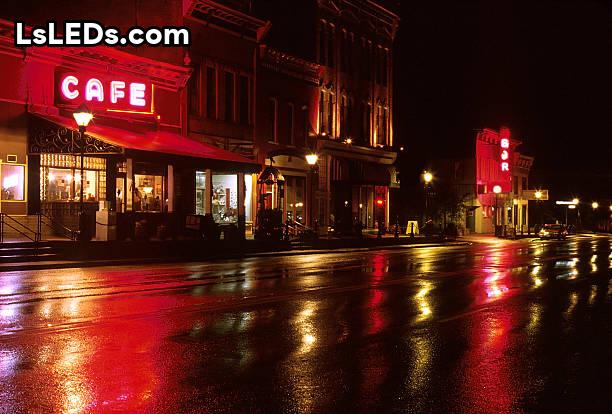
Table of Contents
Why is street lighting important?
There are many benefits to street lighting. It is possible to use it to promote security in urban areas and to increase the quality of life by artificially extending the hours in which it is light. Safety for drivers, riders, and pedestrians can be improved by street lighting.
Does street lighting reduce crime?
Street lighting can reduce crime according to the evidence. Compared to comparison areas without increased street lighting, crime was reduced by an average of 21% when street lighting was increased.
What role does street lighting play in protecting the community?
By enhancing visibility, lighting has the potential to change crime through a number of channels, including by empowering potential victims to better protect themselves and by making potential offenders more aware that a public space has witnesses or that police are present.
What is a disadvantage of street lights?
What are the disadvantages of lights?
The use of Incandescent Bulbs has some drawbacks. The main disadvantage of incandescent bulbs is that they cost a lot of money to maintain. Compared to other bulbs in the market, they are more expensive to maintain and have no advantages to justify the extra cost.
What are the disadvantages of automatic street lights?
The risk of theft of the street light system is higher due to their non-wired nature. The automatic street light system’s batteries need to be changed a few times. Dust and snow can accumulate in the panels which can make it hard to produce energy.
Are street lights bad for sleep?
The bright lights can cause melatonin to be suppressed at night, making it harder to fall asleep or get a good night’s sleep. All street lights should be used with proper coverings and dimmed during off-peak hours, according to the medical association.
Do street lights use LEDs?
Replacing older forms of street lighting in the UK with LEDs is cheaper to run, easier to control and has less light dispersal. The mercury and sodium street lights have been replaced with light emitting devices.

How do street lights reduce crime?
This is the first thing. Improved lighting increases the risk of being seen or recognized when committing a crime. There are two things. The decision to stop crime is made when police become more visible.
How do street lights help in reducing crime?
Increasing lighting and ensuring streets are clean have positive effects on crime reduction. Increased public confidence in the safety of an area leads to reduced fear of crime.
Do street lights deter burglars?
According to a study by the Office for National Statistics, more than half of the break-ins occur during the day. Night time lights won’t make a difference if you’re burgled.
How does lighting improve safety?
An enhanced perception of safety can be created by well-lit areas. Increased safety can be achieved by improved visibility and decreased concealment.
Why are LED street lights bad?
The website says that some LEDs are harmful when used as street lighting. It explains that while the lights appear white to the human eye, they are actually blue, which can make nighttime glares more harsh for eyes and make them feel uncomfortable.
Does street lighting affect crime?
The introduction of street lights in places with high crime rates has been shown to have a benefit in reducing crime. The improved lighting was introduced because of a reason.
Does street lighting deter crime?
Improved lighting increases the risk of being seen or recognized when committing a crime. There are two things. The decision to stop crime is made when police become more visible.
Does improved lighting reduce crime?
Improved lighting is an effective crime prevention tool because it makes people feel safer.
What is bad about street lights?
When street lights are too bright they can cause light pollution, which can delay the growth of crops, make astronomy more difficult, and cause sea turtle hatchlings to wander inland, where they end up dying after being run over by cars or eaten.
Is light pollution a crime?
The new law makes it a criminal offence to emit exterior light that is not good for health or a nuisance. The law doesn’t tackle all forms of light pollution, only bad lighting from some types of premises which cause people a lot of problems.
